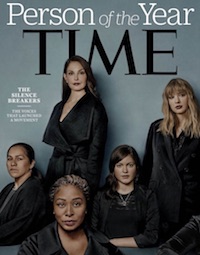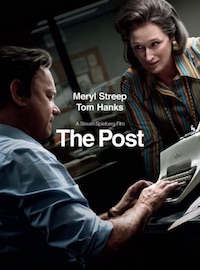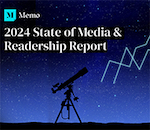“Phenomenal reporting” by “determined journalists" helped break the female sexual assault story that has dominated media in recent months.
The remark is by Time editor-in-chief Edward Felsenthal in the Dec. 18 Time showing five women as the magazine’s “Person of the Year.”
 |
“The determined journalists picked up where so many human resources departments, government committees and district attorneys had clearly failed, proving the truth of rumors that had circulated across whisper networks for years,” he wrote.
Time’s cover featured Isabel Pascual, strawberry picker who spoke out against harassment; Adama Iwu, California lobbyist; actor Ashley Judd; Susan Fowler who exposed the “toxic culture” at Uber, and singer/composer Taylor Swift.
Streep Asks “50/50 by 20/20”
Meryl Streep, appearing in Boston Dec. 7 at the #metoo conference attended by 16,000 women, said women must seek “50/50 by 20/20” meaning equal numbers of women and men in board rooms by that date.
Streep, who lauded the role journalists play at the dinner of the Committee to Protect Journalists dinner Nov. 15, said, “Equal means equal. It starts at the top.”
She appeared on a panel with Gloria Steinem, who called President Trump “harasser in chief.”
She said the usual board is “three women and 12 other people. Gender stereotypes are learned and normalized at an early age.” She called on MGM to release tapes that show Trump talking about the sexual harassment incidents. It might be the “tipping point” if they are released, she said.
Streep Stars in “The Post”
 |
Streep plays Washington Post publisher Katherine Graham in “The Post,” a movie set in the President Nixon era when the Watergate scandal broke that led to his resignation. The Post played a key role in uncovering the scandal. Also covered is the paper’s role in publishing “The Pentagon Papers.”
Author Theodore White, quoted in the Dec. 11 Time, said journalism is “a form of public service: afflict the comfortable and comfort the afflicted, exposing incompetence and corruption wherever we find it.”
He said “critical stories are journalism; anything else is marketing. But a bias against the positive fuels cynicism in both public officials and voters,” he wrote.
“Journalists need to bring to the table people who would not otherwise be talking and ask the hardest questions we can, with nothing off limits,” he added.


 Trump Media & Technology Group today reported a $58.2M net loss on $4.1M in 2023 revenues, a disclosure that drove its stock price down 22.6 percent to $47.96.
Trump Media & Technology Group today reported a $58.2M net loss on $4.1M in 2023 revenues, a disclosure that drove its stock price down 22.6 percent to $47.96. Barry Pollack, an attorney at Wall Street’s Harris St. Laurent & Wechsler, has registered Julian Assange as a client with the Justice Dept. “out of an abundance of caution.”
Barry Pollack, an attorney at Wall Street’s Harris St. Laurent & Wechsler, has registered Julian Assange as a client with the Justice Dept. “out of an abundance of caution.” Paramount Global to slash 800 jobs in what chief executive Bob Bakish calls part of an effort to “return the company to earnings growth"... Rolling Stone editor-in-chief Noah Shachtman is exiting at the end of the month due to disagreements with chief executive Gus Wenner over the direction the magazine is taking... The New York Times broke the $1 billion barrier in annual revenue from digital subscriptions in 2023... Press Forward is investing more than $500 million to strengthen local newsrooms.
Paramount Global to slash 800 jobs in what chief executive Bob Bakish calls part of an effort to “return the company to earnings growth"... Rolling Stone editor-in-chief Noah Shachtman is exiting at the end of the month due to disagreements with chief executive Gus Wenner over the direction the magazine is taking... The New York Times broke the $1 billion barrier in annual revenue from digital subscriptions in 2023... Press Forward is investing more than $500 million to strengthen local newsrooms. The majority of news articles are read within the first three days of publication, according to a recent report.
The majority of news articles are read within the first three days of publication, according to a recent report. The Los Angeles Times gives pink slips to 115 people or 20 percent of its newsroom staff... TIME is also laying off about 30 employees, which is approximately 15 percent of its editorial staff... The Baltimore Banner, which was launched by Stewart Bainum in 2022 after he failed to buy the Baltimore Sun, added 500 subscribers per day in the three days following Sinclair Broadcast Group's deal to purchase the Sun.
The Los Angeles Times gives pink slips to 115 people or 20 percent of its newsroom staff... TIME is also laying off about 30 employees, which is approximately 15 percent of its editorial staff... The Baltimore Banner, which was launched by Stewart Bainum in 2022 after he failed to buy the Baltimore Sun, added 500 subscribers per day in the three days following Sinclair Broadcast Group's deal to purchase the Sun.


 Have a comment? Send it to
Have a comment? Send it to 
No comments have been submitted for this story yet.